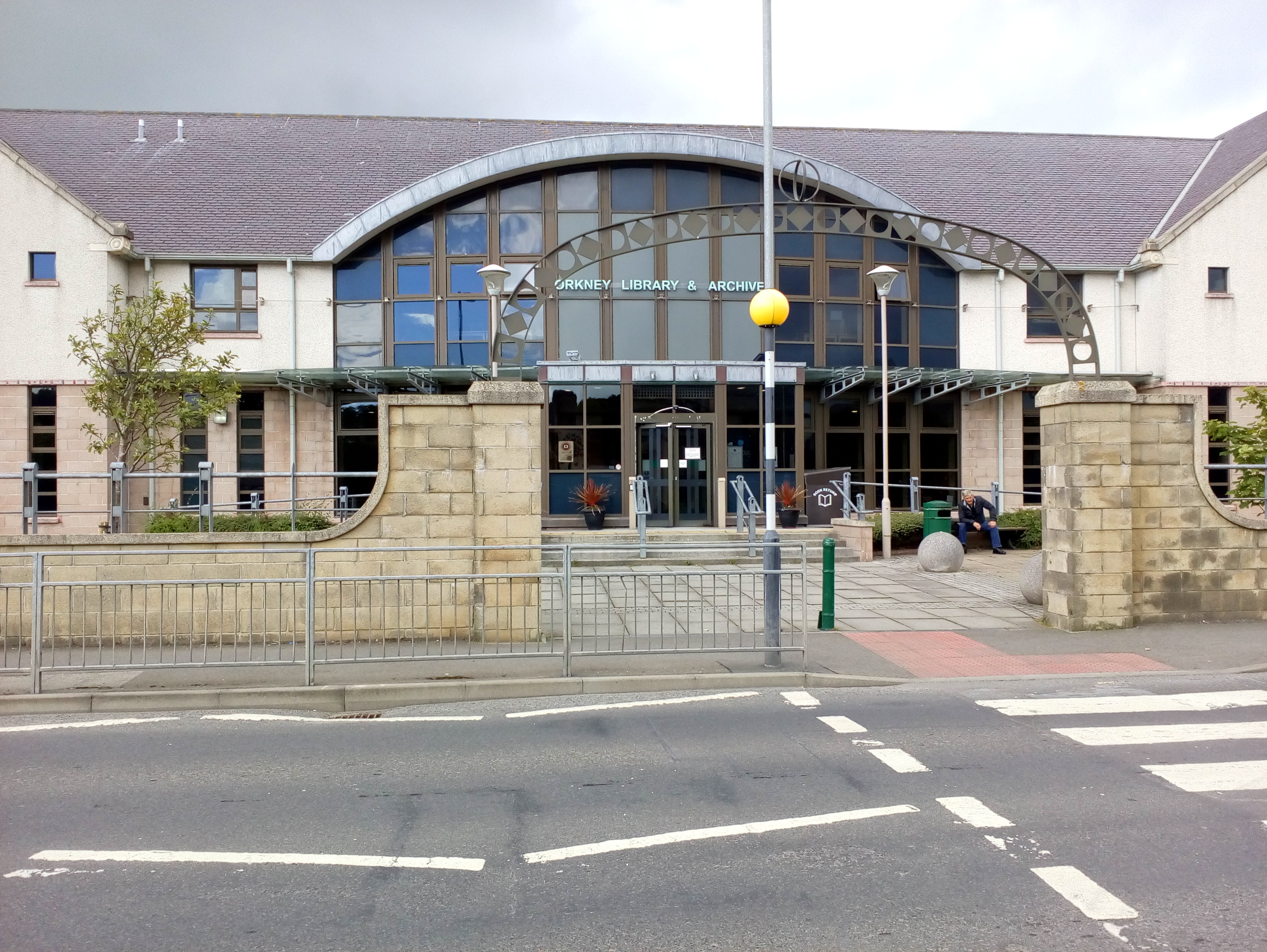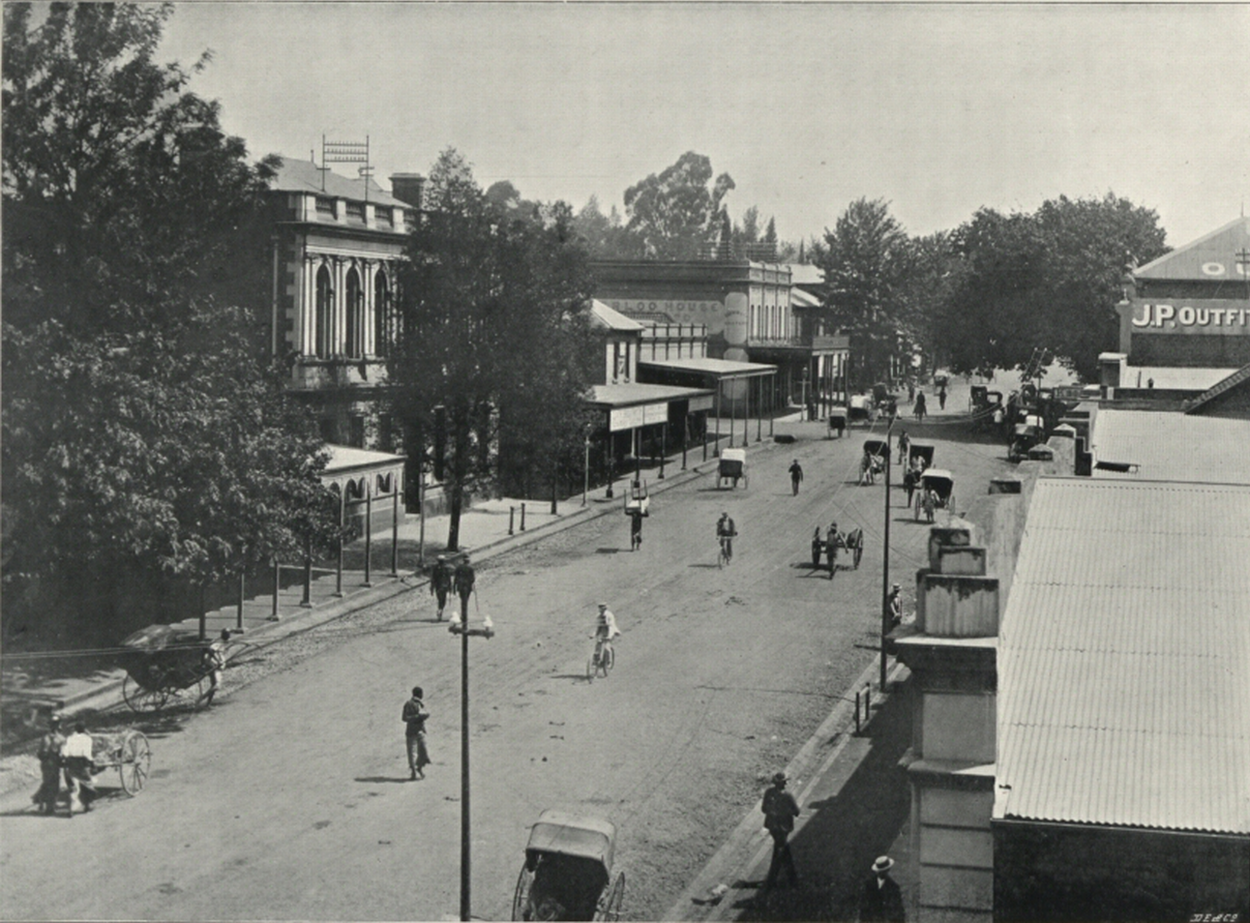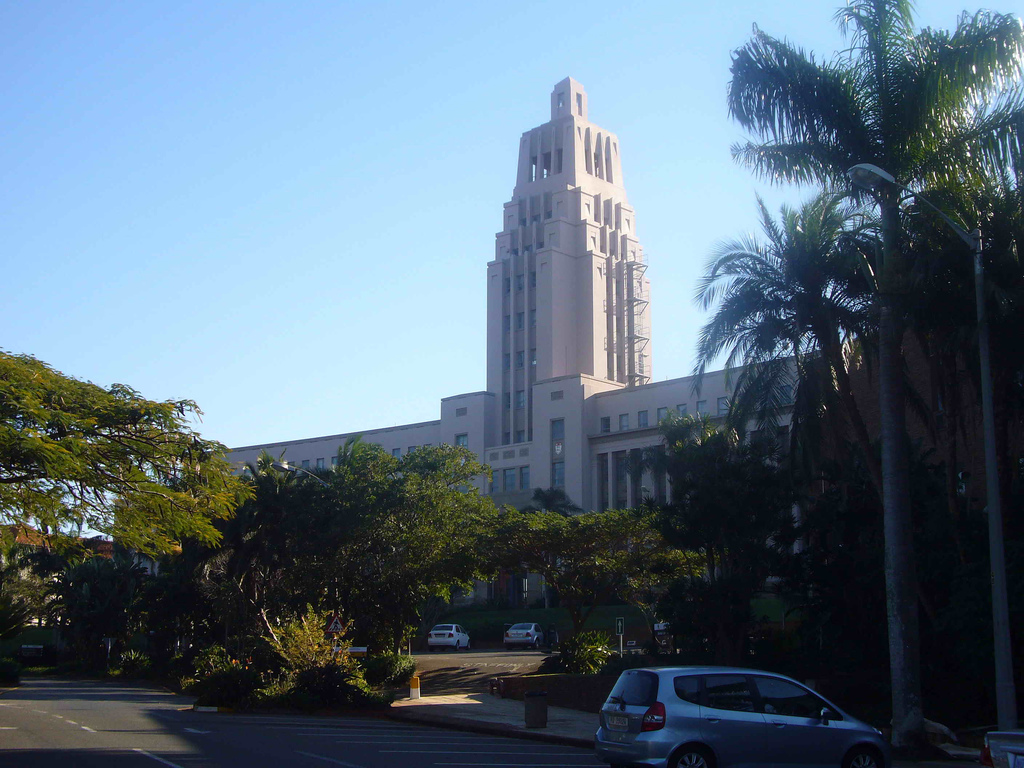|
John Bews
John William Bews (16 December 1884 — 10 November 1938) was a Scottish born South African botanist. Early life Bews was born in Kirkwall on the Orkney Islands of Scotland. His parents were farmers. He did his schooling in Kirkwall and later studied mathematics, natural philosophy, chemistry, geology, Latin, English and logic at Edinburgh University. He took a second degree in botany, chemistry and geology in 1907. Botanical work In 1909 Bews was appointed professor of botany and geology at the newly established Natal University College in Pietermaritzburg, South Africa. Originally intending to study plant physiology, the challenges of a new and under-resourced laboratory and the new (to him) vegetation of the Natal Midlands meant that he changed the direction of his study to field work. Philosophy Bews was a protege of General Jan Smuts and was influenced by his ideas on Jan Smuts#Holism and related academic work, holism. "Botany, patriotism and the politics of national unit ... [...More Info...] [...Related Items...] OR: [Wikipedia] [Google] [Baidu] |
Kirkwall
Kirkwall ( sco, Kirkwaa, gd, Bàgh na h-Eaglaise, nrn, Kirkavå) is the largest town in Orkney, an archipelago to the north of mainland Scotland. The name Kirkwall comes from the Norse name (''Church Bay''), which later changed to ''Kirkvoe'', ''Kirkwaa'' and ''Kirkwall''. Kirkwall was formerly the site of an ancient Norse town founded approximately 1000 years ago. Today, it is a transport hub with ferries to many locations. History The town was first mentioned in in the year 1046, when it was recorded as the residence of , the Earl of Orkney, who was killed by his uncle Thorfinn the Mighty. In 1486, King James III of Scotland elevated Kirkwall to the status of a royal burgh. On the western edge of the town, surrounded by Hatston Industrial Estate, there is a prehistoric monument, known as the "Grain Earth House" (see Historic Scotland). It is a short, low, stone-walled passage, deep underground, leading to a small pillared chamber. This kind of earth house (or "souterrai ... [...More Info...] [...Related Items...] OR: [Wikipedia] [Google] [Baidu] |
Orkney Islands
Orkney (; sco, Orkney; on, Orkneyjar; nrn, Orknøjar), also known as the Orkney Islands, is an archipelago in the Northern Isles of Scotland, situated off the north coast of the island of Great Britain. Orkney is 10 miles (16 km) north of the coast of Caithness and has about 70 islands, of which 20 are inhabited. The largest island, the Mainland, has an area of , making it the sixth-largest Scottish island and the tenth-largest island in the British Isles. Orkney’s largest settlement, and also its administrative centre, is Kirkwall. Orkney is one of the 32 council areas of Scotland, as well as a constituency of the Scottish Parliament, a lieutenancy area, and an historic county. The local council is Orkney Islands Council, one of only three councils in Scotland with a majority of elected members who are independents. The islands have been inhabited for at least years, originally occupied by Mesolithic and Neolithic tribes and then by the Picts. Orkney was col ... [...More Info...] [...Related Items...] OR: [Wikipedia] [Google] [Baidu] |
Pietermaritzburg
Pietermaritzburg (; Zulu: umGungundlovu) is the capital and second-largest city in the province of KwaZulu-Natal, South Africa. It was founded in 1838 and is currently governed by the Msunduzi Local Municipality. Its Zulu name umGungundlovu is the name used for the district municipality. Pietermaritzburg is popularly called Maritzburg in Afrikaans, English and Zulu alike, and often informally abbreviated to PMB. It is a regionally important industrial hub, producing aluminium, timber and dairy products, as well as the main economic hub of Umgungundlovu District Municipality. The public sector is a major employer in the city due to local, district and provincial governments located here. The city has many schools and tertiary education institutions, including a campus of the University of KwaZulu-Natal. It had a population of 228,549 in 1991; the current population is estimated at over 600,000 residents (including neighbouring townships) and has one of the largest populatio ... [...More Info...] [...Related Items...] OR: [Wikipedia] [Google] [Baidu] |
Edinburgh University
The University of Edinburgh ( sco, University o Edinburgh, gd, Oilthigh Dhùn Èideann; abbreviated as ''Edin.'' in post-nominals) is a public research university based in Edinburgh, Scotland. Granted a royal charter by King James VI in 1582 and officially opened in 1583, it is one of Scotland's four ancient universities and the sixth-oldest university in continuous operation in the English-speaking world. The university played an important role in Edinburgh becoming a chief intellectual centre during the Scottish Enlightenment and contributed to the city being nicknamed the "Athens of the North." Edinburgh is ranked among the top universities in the United Kingdom and the world. Edinburgh is a member of several associations of research-intensive universities, including the Coimbra Group, League of European Research Universities, Russell Group, Una Europa, and Universitas 21. In the fiscal year ending 31 July 2021, it had a total income of £1.176 billion, of which £3 ... [...More Info...] [...Related Items...] OR: [Wikipedia] [Google] [Baidu] |
Natal University College
The University of Natal was a university in the former South African province Natal which later became KwaZulu-Natal. The University of Natal no longer exists as a distinct legal entity, as it was incorporated into the University of KwaZulu-Natal on 1 January 2004. It was founded in 1910 as the Natal University College in Pietermaritzburg and expanded to include a campus in Durban in 1931. In 1947, the university opened a medical school for non-white students in Durban. The Pietermaritzburg campus was known for its agricultural engineering programmes, hence the nickname "the farmers" whilst the Durban campus was known as "the engineers," as it concentrated on other engineering programmes. The Council of the University of Natal voted on 31 May 2002 to offer the post of Vice-Chancellor and University Principal to world-renowned medical scientist and former Medical Research Council President - Professor Malegapuru Makgoba who assumed office on the 1 September 2002. He was entruste ... [...More Info...] [...Related Items...] OR: [Wikipedia] [Google] [Baidu] |
Natal Midlands
The KwaZulu-Natal midlands is an inland area of KwaZulu-Natal, South Africa that starts from Pietermaritzburg and ends before the Drakensberg mountain range. Area There are several small towns located in the midlands, including: Pietermaritzburg, Richmond, Ixopo, Kokstad, Howick, Merrivale, Hilton, Lions River, Dargle, Lidgetton, Balgowan, Nottingham Road, Rosetta and Mooi River. The Midlands Meander is several tourism routes that include accommodation, art and crafts, leisure, activities and restaurant stops. Some of South Africa's top private schools are located in the Midlands, including: Cowan House, Clifton Preparatory School, Treverton Preparatory School and College, Hilton College, Michaelhouse and St. Anne's Diocesan College. The region is also becoming known as a wine-producing region. Geography Many parts of the Midlands Meander resemble the Northern European countryside as there are lush green pastures for cattle to graze on, in order to produce milk and che ... [...More Info...] [...Related Items...] OR: [Wikipedia] [Google] [Baidu] |
Jan Smuts
Field Marshal Jan Christian Smuts, (24 May 1870 11 September 1950) was a South African statesman, military leader and philosopher. In addition to holding various military and cabinet posts, he served as prime minister of the Union of South Africa from 1919 to 1924 and 1939 to 1948. Smuts was born to Afrikaner parents in the British Cape Colony. He was educated at Victoria College, Stellenbosch before reading law at Christ's College, Cambridge on a scholarship. He was called to the bar at the Middle Temple in 1894 but returned home the following year. In the leadup to the Second Boer War, Smuts practised law in Pretoria, the capital of the South African Republic. He led the republic's delegation to the Bloemfontein Conference and served as an officer in a commando unit following the outbreak of war in 1899. In 1902, he played a key role in negotiating the Treaty of Vereeniging, which ended the war and resulted in the annexation of the South African Republic and Orange Free St ... [...More Info...] [...Related Items...] OR: [Wikipedia] [Google] [Baidu] |
List Of Herbaria
This is a list of active herbaria, organized first by continent where the herbarium is located, then within each continent by size of the collection. The list is based on the Index Herbariorum, a global directory of herbaria and their associated staff. A herbarium (''plural'' "herbaria") is a collection of preserved plant specimens. These specimens may be whole plants or plant parts: these will usually be in a dried form, mounted on a sheet, but depending upon the material may also be kept in alcohol or other preservative. The same term is often used in mycology to describe an equivalent collection of preserved fungi and in phycology to describe a collection of algae. To preserve their form and color, plants collected in the field are spread flat on sheets of newsprint and dried, usually in a plant press, between blotters or absorbent paper. The specimens, which are then mounted on sheets of stiff white paper, are labeled with all essential data, such as collector, date and place ... [...More Info...] [...Related Items...] OR: [Wikipedia] [Google] [Baidu] |
University Of Natal
The University of Natal was a university in the former South African province Natal which later became KwaZulu-Natal. The University of Natal no longer exists as a distinct legal entity, as it was incorporated into the University of KwaZulu-Natal on 1 January 2004. It was founded in 1910 as the Natal University College in Pietermaritzburg and expanded to include a campus in Durban in 1931. In 1947, the university opened a medical school for non-white students in Durban. The Pietermaritzburg campus was known for its agricultural engineering programmes, hence the nickname "the farmers" whilst the Durban campus was known as "the engineers," as it concentrated on other engineering programmes. The Council of the University of Natal voted on 31 May 2002 to offer the post of Vice-Chancellor and University Principal to world-renowned medical scientist and former Medical Research Council President - Professor Malegapuru Makgoba who assumed office on the 1 September 2002. He was entrus ... [...More Info...] [...Related Items...] OR: [Wikipedia] [Google] [Baidu] |
1938 Deaths
Events January * January 1 ** The new constitution of Estonia enters into force, which many consider to be the ending of the Era of Silence and the authoritarian regime. ** State-owned railway networks are created by merger, in France ( SNCF) and the Netherlands (Nederlandse Spoorwegen – NS). * January 20 – King Farouk of Egypt marries Safinaz Zulficar, who becomes Queen Farida, in Cairo. * January 27 – The Honeymoon Bridge at Niagara Falls, New York, collapses as a result of an ice jam. February * February 4 ** Adolf Hitler abolishes the War Ministry and creates the Oberkommando der Wehrmacht (High Command of the Armed Forces), giving him direct control of the German military. In addition, he dismisses political and military leaders considered unsympathetic to his philosophy or policies. General Werner von Fritsch is forced to resign as Commander of Chief of the German Army following accusations of homosexuality, and replaced by General Walther ... [...More Info...] [...Related Items...] OR: [Wikipedia] [Google] [Baidu] |
University Of Natal Faculty
A university () is an institution of higher (or tertiary) education and research which awards academic degrees in several academic disciplines. Universities typically offer both undergraduate and postgraduate programs. In the United States, the designation is reserved for colleges that have a graduate school. The word ''university'' is derived from the Latin ''universitas magistrorum et scholarium'', which roughly means "community of teachers and scholars". The first universities were created in Europe by Catholic Church monks. The University of Bologna (''Università di Bologna''), founded in 1088, is the first university in the sense of: *Being a high degree-awarding institute. *Having independence from the ecclesiastic schools, although conducted by both clergy and non-clergy. *Using the word ''universitas'' (which was coined at its foundation). *Issuing secular and non-secular degrees: grammar, rhetoric, logic, theology, canon law, notarial law.Hunt Janin: "The university in ... [...More Info...] [...Related Items...] OR: [Wikipedia] [Google] [Baidu] |







